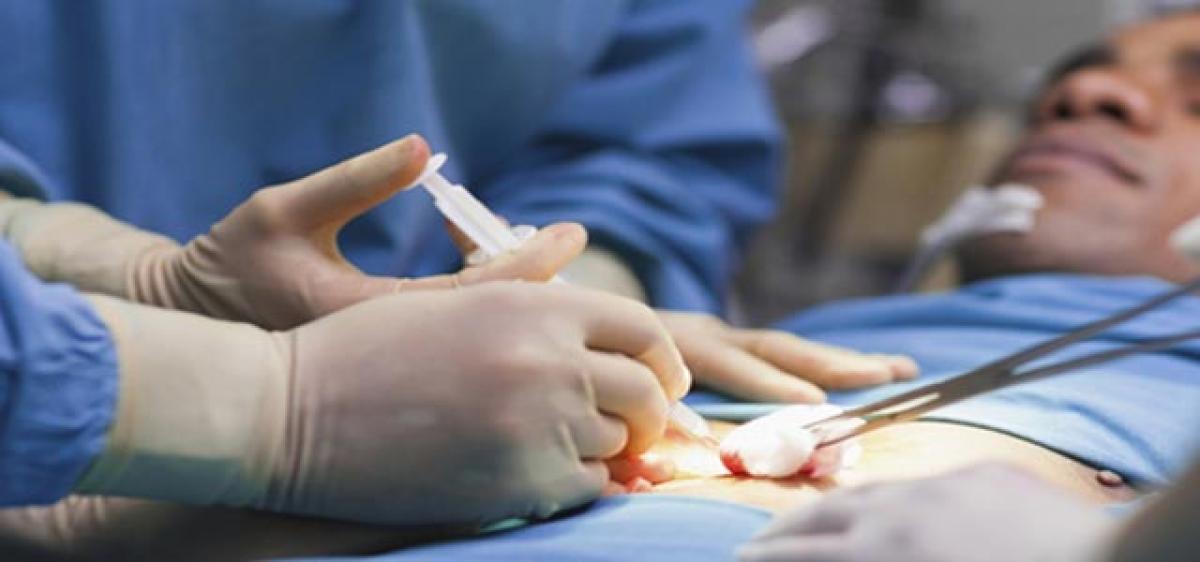Live
- Vaikuntha Dwara Darshan from Jan 10 to 19
- Airport at Mandasa sparks protests
- KIIT-DU bags 4th rank in THE 2025 Science rankings
- YSRCP govt signed PPAs with SECI only: Kakani
- SIT speeds up probe in adulterated ghee case
- Cyber crime police refund Rs 3.59L to three cyber victims
- SAAP chairman rebukes Jagan’s comments on fee reimbursement
- Agri Minister Tummala: Bhadradri Kothagudem will be a model district
- Skilled workers urged to avail of PM Vishwakarma Yojana
- Ajit Pawar’s power play backs Fadnavis for CM post
Just In

Losing weight through surgical approaches appears to reset chemical messages that fat cells send, substantially reducing people\'s risk of developing Type 2 diabetes, a study has found.
Losing weight through surgical approaches appears to reset chemical messages that fat cells send, substantially reducing people's risk of developing Type 2 diabetes, a study has found.
Fat cells also known as adipocytes send messages to other cells in the form of exosomes nanosised blobs whose contents regulate which proteins are produced by genes.
However, the messages contained in exosomes from patients who are obese alter how the body processes insulin, setting the stage for Type 2 diabetes, said researchers from the George Washington University School of Medicine and Health Sciences.
For the study, published in the journal Obesity, the team worked with six adults scheduled to receive gastric bypass surgery, whose average age was 38 years, and had an average body mass index (BMI) of 51.2 kg/m2.
Blood samples showed that at least 168 microRNAs the molecules responsible for sending specific messages had changed before and after surgery.
Further analyses showed that many of these microRNAs were involved in insulin signalling, the pathways that the body uses to regulate blood sugar.
By changing these outgoing microRNAs for the better, adipocytes actively were encouraging higher insulin sensitivity in other cells, warding off Type 2 diabetes, said Robert J. Freishtat, Associate Professor at the George Washington University School of Medicine and Health Sciences.
Post-surgery each volunteer showed better insulin sensitivity and other improved markers of metabolic health. "These volunteers were essentially cured of their diabetes after surgery. The changes we saw in their surgery-responsive microRNAS correlated with the changes we saw in their metabolic health," Freishtat said.
The findings offer hope to the nearly 2 billion adults who are overweight or obese worldwide that many of the detrimental effects of carrying too much weight can recede, even on the molecular level, once they lose weight, the researchers noted.

© 2024 Hyderabad Media House Limited/The Hans India. All rights reserved. Powered by hocalwire.com







